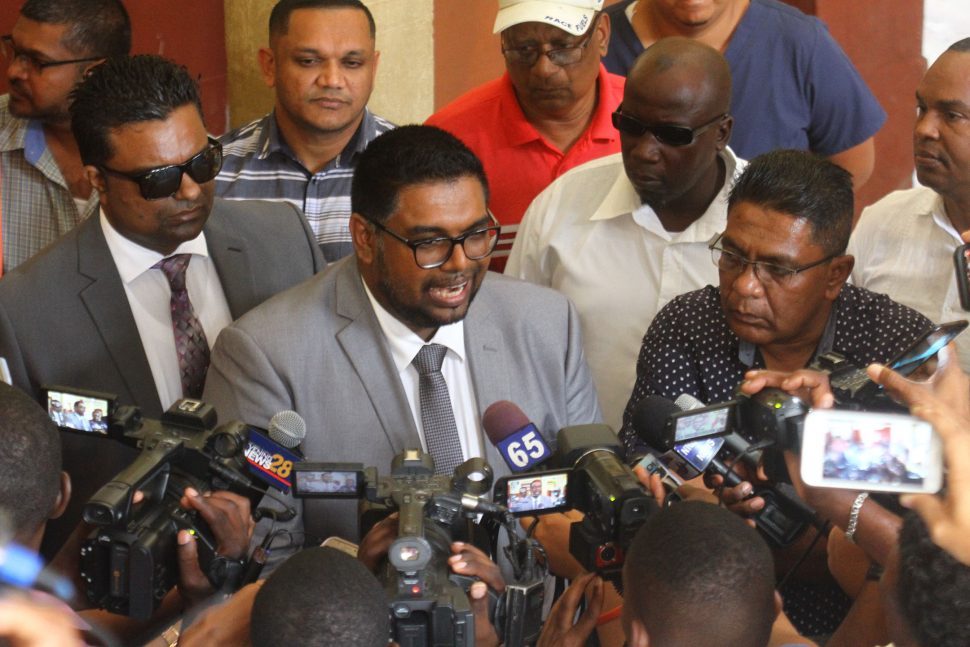The advice offered to PPP presidential candidate Irfaan Ali by the Canadian High Commission of Trinidad and Tobago appears to be in line with the country’s laws related to “criminal inadmissibility” of Foreign Nationals.
On Monday, Ali, 38, was told by Canada not to travel there as a result of the 19 charges brought against him by the Special Organised Crime Unit (SOCU) in November last year and he has been given 30 days to respond.
According to the Immigration and Citizenship website of the Canadian Government, a person charged with a crime outside of Canada and whose trial is still underway is deemed “criminally inadmissible” and likely cannot enter the country.
Ali’s trial on the 19 charges has not yet begun and he is challenging the charges in the High Court
The website offers an interpretation of that country’s Immigration and Refugee Protection Act (IRPA) and provides the referenced answer as to one of its Frequently Asked Questions.
Section 33 of the Act deals with inadmissibility and notes that the facts that constitute inadmissibility unless otherwise provided, include facts for which there are reasonable grounds to believe that they have occurred, are occurring or may occur.
Section 36 goes on to explain that a foreign national is inadmissible on grounds of serious criminality for (b) having been convicted of an offence outside Canada that, if committed in Canada, would constitute an offence under an Act of Parliament punishable by a maximum term of imprisonment of at least 10 years; or (c) committing an act outside Canada that is an offence in the place where it was committed and that, if committed in Canada, would constitute an offence under an Act of Parliament punishable by a maximum term of imprisonment of at least 10 years.
On Wednesday, Ali issued the following statement:
“I have noted the mischief being peddled on the social media in relation to my visit to Canada. As was publicised, I have a series of meetings and events with the Diaspora planned in Toronto, Canada. I was scheduled to leave Guyana, on Tuesday, January 29, 2019, at 10:20am, via Caribbean Airlines: BW 0600 flight.
“On Monday, January 28, 2019, at 4:05pm, I received a correspondence from the High Commission of Canada, Port of Spain, Trinidad and Tobago, advising me of a report in relation to the 19 trumped-up charges by SOCU. In the correspondence, they advised me not to travel and gave 30 days to respond to the correspondence.
“Contrary to social media reports, I am in possession of a valid passport and visa to Canada. I have also since contacted the Canadian High Commissioner, in Georgetown, Guyana who is looking into the matter.
“As I await the outcome, I assure all Guyanese in the Diaspora of my utmost respect and regard for them and the circumstances surrounding my travel to Canada at this time is beyond my control”.
The charges, which detail offences alleged to have occurred between the period of September, 2010 to March 30, 2015, are in connection with the Pradoville 2 Housing Scheme on the East Coast of Demerara, and involve housing allocations to six Cabinet members—then president Bharrat Jagdeo, Cabinet Secretary Dr Roger Luncheon and ministers Priya Manickchand, Dr Jennifer Westford, Robert Persaud and Clement Rohee—along with other persons with connections to the government.
The basis of the charges is that the lands were sold far below their value. It is unclear if any action is contemplated against the recipients of the land.









